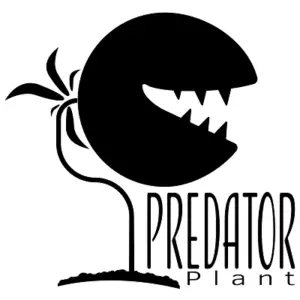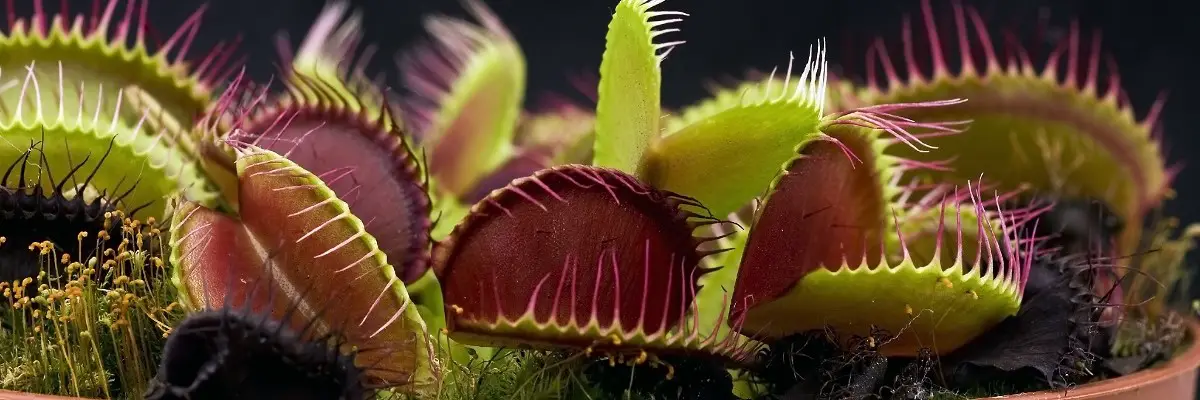Can You Feed Venus Fly Traps Meat?: Many people may be wondering if they can feed their Venus fly trap meat, and the answer is yes! Venus fly traps are carnivorous plants that have been gaining popularity in recent years. While these plants typically eat insects like flies or spiders, they will also accept small pieces of raw meat as food.
When feeding your Venus fly trap with meat, it’s important to use only small amounts at a time. Meat should not make up more than 10% of its diet; otherwise, it could cause digestive issues for the plant. Additionally, you should avoid giving your plant processed meats such as hot dogs or bacon since these contain too much fat and salt, which can harm the plant over time.
While Venus fly traps can digest meat, it is not a natural part of their diet and should not be considered a primary plant nutrition source. Meat is a poor source of the necessary nutrients that Venus fly traps need to survive and may even harm the plant if fed in large amounts. Insects, on the other hand, are a rich source of protein, which is essential for the growth and survival of Venus fly traps. Additionally, insects have a tough exoskeleton that Venus fly traps can digest easily, while meat lacks this feature.
Feeding Venus fly traps small amounts of meat as a treat is possible, but it should not be a regular part of their diet. It is better to stick to a diet of live or frozen insects, such as small crickets or mealworms. Feeding Venus fly traps a diet of insects will ensure they receive the necessary nutrients and energy to thrive.
It’s best to give your Venus Fly Trap fresh pieces of raw beef tenderloin since it contains all essential nutrients without any added preservatives that could damage its long-term health. You can cut up very small cubes (about 1/8 inch) and place them directly on top of one open leaf so that the juices from the meat seep into other parts of its body while eating it slowly over several days before replacing it with another piece when needed again later on down the line..
You must provide adequate light exposure throughout the day – preferably between 8 am-5 pm – moisture by misting leaves twice daily & soil dampness during the growing season (spring/summer). Lastly, don’t forget about fertilizing every month using diluted liquid fertilizer designed specifically for carnivorous plants! This will ensure proper growth & development within their environment, so be sure not to skip out on this step either way!
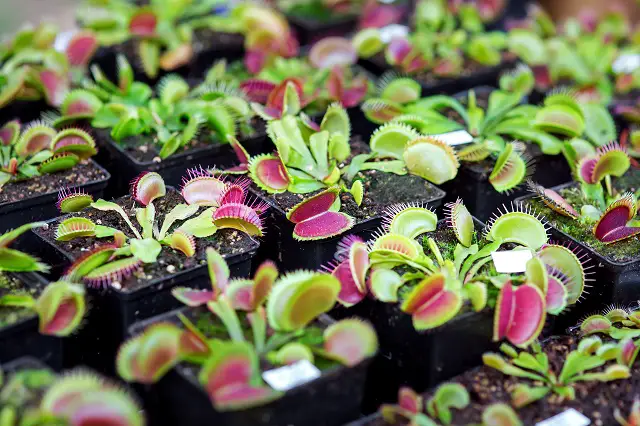
What happens if you feed a Venus flytrap chicken?
If you were to feed a Venus flytrap chicken meat, the plant would likely be unable to properly digest the food. The enzymes and acids in the plant’s digestive system are not well-suited for breaking down the larger, tougher proteins and fibers found in chicken meat. Additionally, Venus flytraps are designed to digest food quickly, so feeding it with chicken meat would take a long time for the plant to digest it.
Furthermore, Venus flytraps need to be fed with living insects or other small invertebrates to maintain their health. These plants are adapted to obtain nutrients from insects and other small prey, and they require the specific nutrition that is found in these creatures to survive. Chicken meat does not provide the same nutritional benefits as insects, and the Venus flytrap may suffer from malnourishment or other health problems if it is fed chicken meat on a regular basis.
What food can you feed a Venus flytrap?
The most important thing when feeding your Venus Flytrap is that the food should be alive; dead insects won’t provide the same nutrients as live ones do. The best foods for a Venus Flytrap are small flying or crawling bugs such as gnats, flies, spiders, and moths – all of which can easily be found around the home or garden! You should also avoid feeding them anything too big; if an insect is larger than about 1/3 of its mouth size, then there’s a chance it won’t be able to close properly on it, causing potential damage. Additionally, you shouldn’t feed your plant more than once per week – overfeeding could cause digestive issues resulting in death!
Finally, remember not everyone enjoys eating bugs – even if they’re good for us (or our plants!) So make sure you only give your venus fly trap treats every now and again rather than making meal times out of bug-hunting trips each day! With these tips in mind, hopefully, both you and your venus fly trap will enjoy many years together without any problems caused by incorrect nutrition choices.
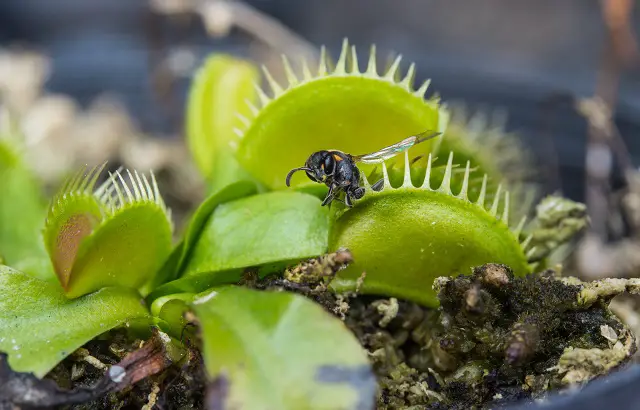
How often do Venus flytraps need to eat?
The answer depends on a few factors, such as the age of the plant, its size, and environmental conditions like temperature and humidity. Suppose you’re looking for more precise information. In that case, it’s best to research your specific species since different varieties may require slightly different feeding schedules due to their varying sizes and nutritional needs. Generally speaking, adult Venus flytrap plants should be fed at least once every two weeks or so with an insect or arachnid no bigger than 1/3rd of the size of its trap.
It’s important not to overfeed your Venus Flytrap because this can cause health issues like root rot which could eventually lead to death if not addressed quickly enough! It’s always better to err on the side of caution when feeding these predators – give them just enough food without going overboard in order to keep them healthy for years to come!
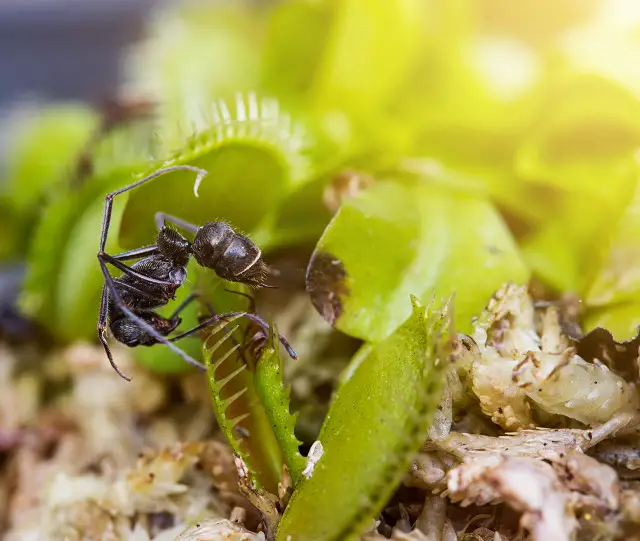
What if I don’t feed my Venus flytrap?
Without regular feeding, a Venus flytrap will eventually starve and die due to lack of nutrition. This is because they rely on the nutrients found within insects for sustenance since there isn’t enough nitrogen or phosphorus present in soil alone to sustain them long-term. In addition, without food sources such as flies or spiders, it can become difficult for a Venus Fly Trap to find adequate nourishment over time, leading it towards an inevitable death unless provided with additional sustenance through other means like fertilizer or supplements added directly into its potting mix soil composition.
Therefore, owners of these fascinating plants must ensure they provide adequate nutrition by regularly feeding their traps so that they remain healthy and vibrant! Fortunately, this doesn’t have to be too much work as all you need do is sprinkle some crickets onto its leaves every couple of weeks – just enough so that your plant has something nutritious but not too much where it becomes overwhelmed with food! With proper care and attention is given, any owner should expect years’ worth of joy from owning this amazing species – making sure, however, to remember about providing necessary meals along the way!
